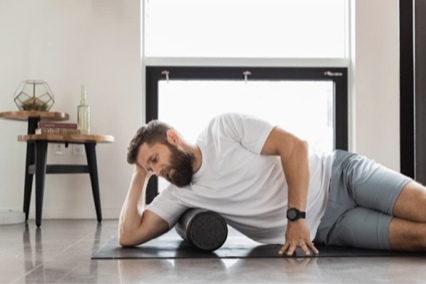Podcast, Rachel Land, Resources, Shoulder, Tiffany Cruikshank, Yoga Medicine® News
73: Unpacking Overhead Shoulder Pain
Today hosts Tiffany and Rachel explore one of the more common challenges yoga students face: shoulder pain when arms are overhead. We shed some light on this common issue, unpacking the anatomical structures involved and discussing possible triggers.
Given how often we take our arms overhead – in yoga, sport, and daily life – we are likely to come across this issue at some point. So whether you are a teacher or yoga student, whether you have this issue or are working with those who do, listen in to this episode to learn all about overhead shoulder pain, and more importantly what you can do about it.
“Our job is not necessarily to train for optimal function. Really what we’re trying to do is teach resiliency.” – Tiffany Cruikshank
YOU CAN SUBSCRIBE AND LISTEN TO THE PODCAST ON APPLE PODCASTS. AND BE SURE TO LEAVE US A RATING AND REVIEW!
“We can start with the myofascial work, maybe free up their range of motion and clear out some of the pain, and then start to put that tissue to work.” – Tiffany Cruikshank
Show Notes:
- A common challenge in yoga, overhead sports, and daily life! [0:42]
- Anatomical structures involved in overhead shoulder pain [3:21]
- Common triggers [6:41]
- Implications of the now-controversial label “impingement” [7:38]
- Untangling multiple contributing factors for overhead shoulder pain [11:49]
- Exploring shoulder resilience: should our shoulders be able to support our weight? [18:55]
- The importance of scapula upward rotation [21:44]
- Muscles that can limit or facilitate upward rotation [25:00]
- “Shoulders back and down” is not always a helpful cue; offering alternatives [27:52]
- Tips for group classes versus working one-on-one [31:43]
- Summarizing common issues: Levator Scapulae, Latissimus Dorsi, Trapezius, Rotator Cuff, Serratus Anterior, thoracic mobility and the cervical spine [36:13]
- A general approach to address overhead shoulder pain and suggested practices [39:42]
- Medical interventions and final takeaways [45:41]
Links Mentioned:
- Watch this episode on YouTube
- Shoulder Yoga Teacher Training
- Yoga Medicine Find A Teacher
- Previous Yoga Medicine Podcast Episodes:
- Yoga Medicine Online Resources:
“The longer it has been raising its head, the muddier the picture tends to become and the more of those factors tend to be involved.” – Rachel Land



















